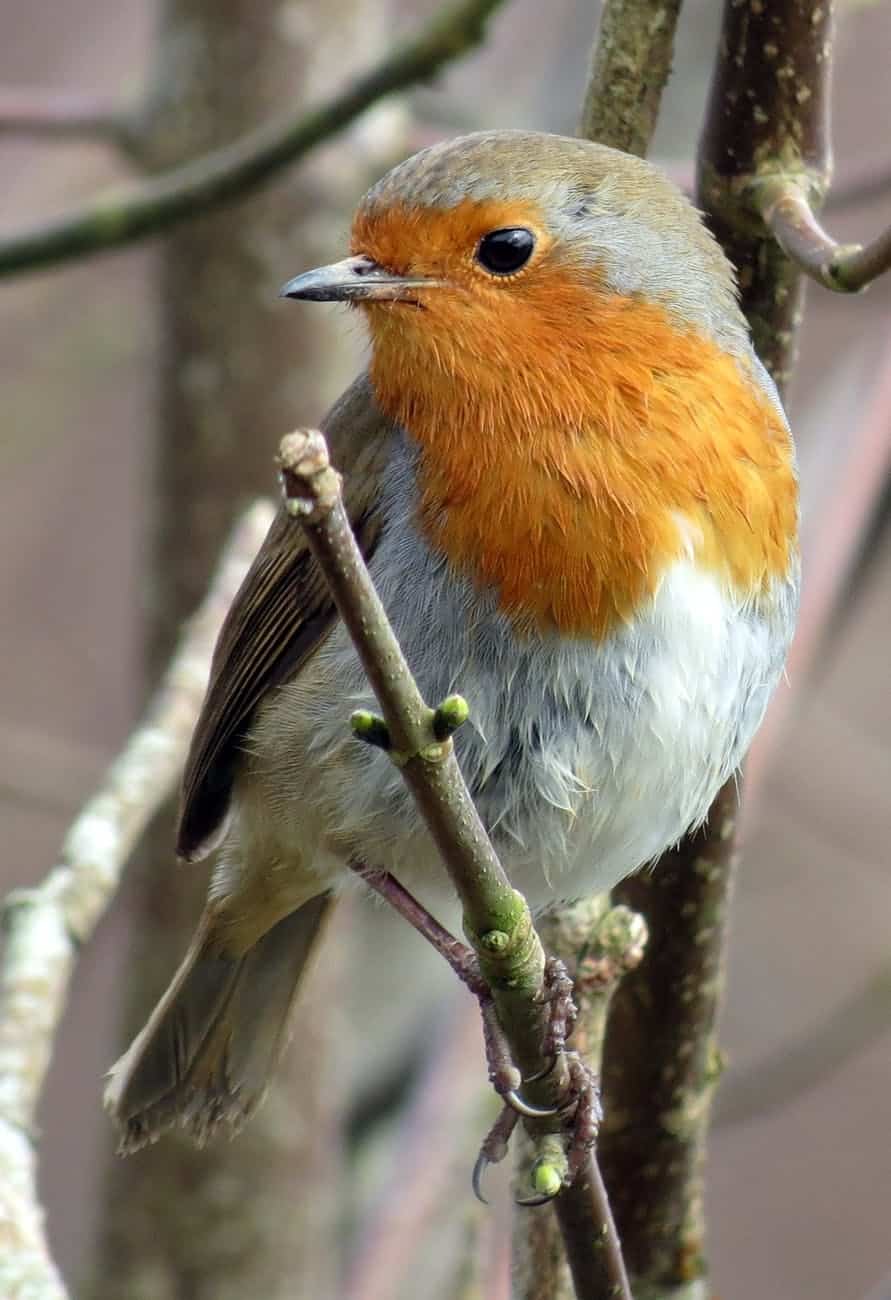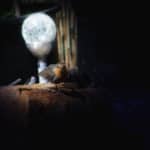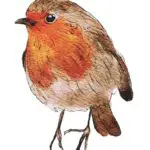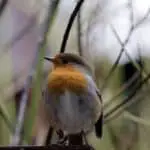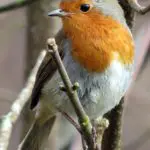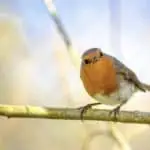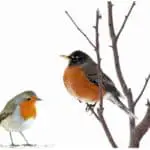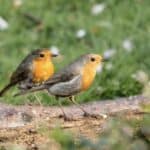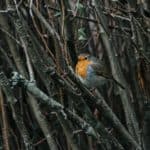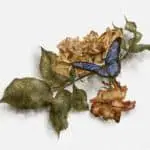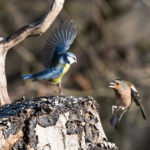As one of nature’s most iconic birds, it is only right that we help in taking care of this beautiful creature. While we often think of them as eating only worms, European Robins consume a wide variety of foods.
Robins are omnivores, which means that they eat both plants and animals. Here is the list of the food that these birds consume every day.
Insects
Robins primarily eat insects. Although they will consume a variety of items available, insects make up the majority of their diet. One study found that a diet consisting of 80% insects is optimal for robins. This is because, the high protein content in insects is key for their growth and development.
Berries & other Fruits
Robins are one of the few birds that can digest berries whole, thanks to their specially adapted digestive system and strong stomach acids. They consume more fruit than any other British bird!
Berries consist of sugars, water, and other nutrients that are essential for the survival of these birds. Some of the berries that robins eat include strawberries, raspberries, blackberries, cherries, grapes, apples, pears, and plums.
Nuts & Seeds
Nuts and seeds are another important part of a robin’s diet. These birds eat a variety of nuts, such as hazelnuts, chestnuts, and acorns. They also consume a variety of seeds, including those from thistles, dandelions, and clover.
Earthworms
While most of their diet revolves around insects, robins also consume earthworms, mollusks, and other invertebrates. These animals provide them with a source of protein and essential nutrients. They have specially adapted digestive systems that allow them to consume these animals whole.
Robins are very adaptable when it comes to their food choices and will eat whatever is available to them. This makes them versatile birds that can be found in many different habitats.
What do baby Robins eat?
Baby robins are called chicks. Chicks eat primarily insects, but they will also consume other items such as berries and worms, just like their parents.
Chicks have a unique digestive system that aids in the digestion of berries completely. This is important because robins rely on insects for most of their nutrients, and berries are a good source of vitamins and minerals.
Robins will also feed their chicks insects, which provide them with important nutrients that help them grow and develop. Chicks rely on their parents for food until they can fly and find food on their own.
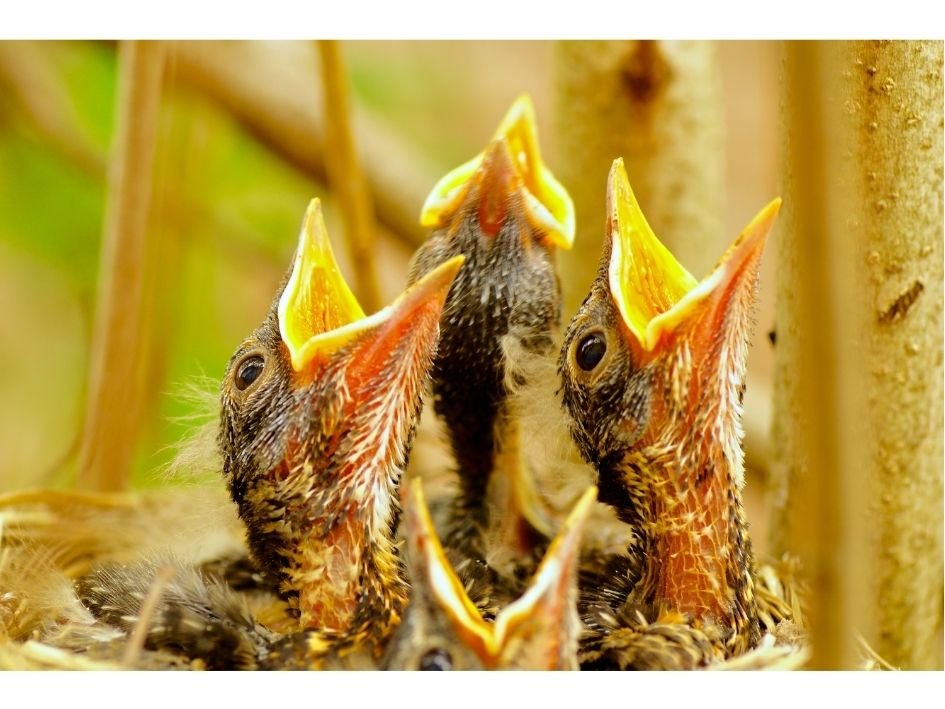
How do European Robins find food?
European robins use their eyes and ears to find food. They can see very well and can spot insects from a distance. They also have excellent hearing and can hear the movement of insects underground.
Robins will listen to the sound of insects moving around in the ground and then fly down to catch them. They are very efficient hunters and can also catch insects in midair.
They will also search for food on the ground and in trees. They can perch on branches and scan the ground for food. If they see an insect, they will fly down and capture it.
Robins are very resourceful when it comes to finding food and will use all of their senses to locate food. They can find food in a variety of habitats and can be found in many different parts of the world.
Serving food to Robins in Your garden
If you want to attract robins to your garden, you can offer them food. There are many different types of bird feeders that you can buy, or you can make your own. You can also put out food on the ground. Some good foods to put out for robins include mealworms, crickets, berries, and nuts.
You can also make a homemade birdbath for robins. This will provide them with a place to drink and bathe. Remember to put the birdbath in a shady spot so that the water does not get too hot.
Something To Keep in mind…
There are a few dangers to a robins’ diet. One of them is that robins can become infected with worms if they eat contaminated soil. Another is that these birds can become poisoned if they eat the wrong type of berry. Harmful fruits and berries include holly, ivy, and mistletoe.
If you have these plants in your garden, you may want to remove them so that robins do not eat them. You should also avoid using pesticides in your garden as they can be toxic to robins.
Robins are also susceptible to avian botulism. This is a disease that is caused by bacteria that thrives in stagnant water. The bacteria produces a toxin that can be fatal to birds. To avoid this, you should keep your birdbath clean and change the water regularly. You should also avoid putting out food that has been contaminated with bird droppings.
What foods should you avoid feeding your Robins?
Robins generally have a strong stomach and can digest most things that they eat, but there are a few exceptions. They have an instinct when it comes to what food they can or cannot eat. However, we can still help them by not contributing things that might be harmful to them.
There are a few foods that you should avoid feeding your robins.
- One food to avoid is bread. Bread is not nutritious for them and can cause them miss out on important nutrients that can be found in other foods.
- Another food to avoid is cow’s milk. Cow’s milk can give robins diarrhea and is not good for their digestive system.
- You should also avoid feeding your robins chocolate, as it can be toxic to them.
- You should also avoid feeding your robins other sugary foods, such as candy or cake. These foods can give robins a sugar rush, which can be harmful to their health.
It’s best to avoid feeding your robins any type of food that is not nutritious for them. If you want to feed your robins, stick to healthy foods such as insects, berries, and nuts.
Robins are natural-born flyers and know how to take care of themselves when they leave the nest. However, we can still help them out by offering them food and water in our garden. By doing this, we can provide these beautiful birds with a safe place to live and thrive.
In summary, robins are beautiful birds that can be found all over the world. They are omnivores and eat both plants and animals. Their diet consists mostly of insects, but they will also eat other things such as worms, berries, and nuts. Robins are very adaptable when it comes to their diet and can thrive in a variety of different environments.
You can help to attract robins to your garden by providing them with food and water. There are a few foods to avoid in a robins’ diet, but overall they are very healthy birds. Robins play an important role in the ecosystem and we should all appreciate and play our part in taking care of them!
